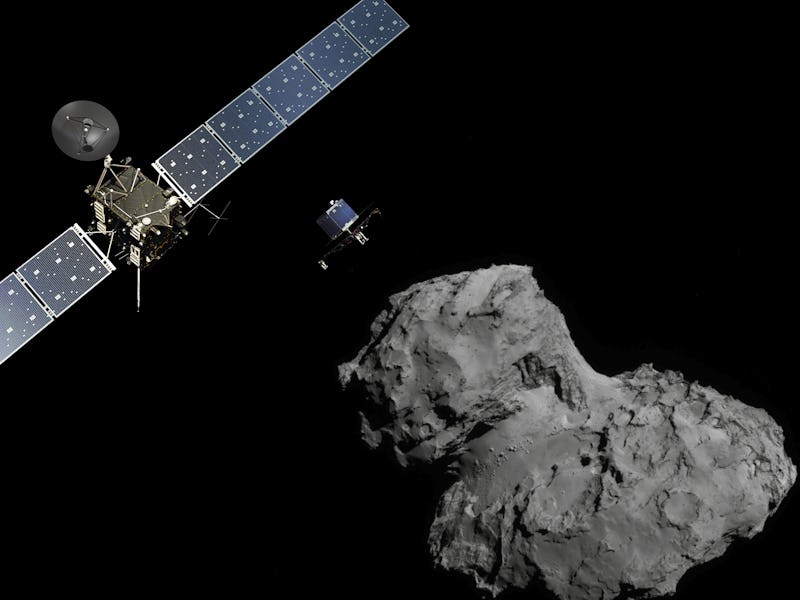The Rosetta Probe Will Make the Ultimate Sacrifice and Soon
The ESA has picked the day Rosetta will kamikaze itself for our knowledge.

The end of Rosetta is nigh. The European Space Agency (ESA) announced today that they will crash the satellite into its subject comet 67/P Churyumov-Gerasimenko this year. Now there’s a date on the books: September 30, 2016.
ESA scientists had to kibbitz before determining what to do with Rosetta. They knew that 67/P’s six-and-a-half year orbit would eventually take it too far from the sun for its solar panels to keep it operational. Options, including placing Rosetta into hibernation like they did in 2011, were discussed. That would have allowed the craft to passively orbit 67/P until the comet returned to solar system central.
However, there were fuel considerations and the craft simply wasn’t designed for the ungodly cold of deep space. According to an ESA statement, “Comet 67P/Churyumov-Gerasimenkos maximum distance from the Sun (over 850 million km) is more than Rosetta has ever journeyed before. The result is that there is not enough power at its most distant point to guarantee that Rosetta’s heaters would be able to keep it warm enough to survive.” Better to let Rosetta go out with a bang of information, then blink into nothingness in the depths of space.
By crashing Rosetta into its subject comet, scientists can end the nearly two decades long mission by learning a few last things. “The final hours of descent will enable Rosetta to make many once-in-a-lifetime measurements, including very-high-resolution imaging, boosting Rosetta’s science return with precious close-up data achievable only through such a unique conclusion,” said the ESA statement.
Comet 67/P's Solar Orbit
On final descent, Rosetta will be traveling about 50cm per second towards the comet. In normal terms, that’s a shade over one mile an hour. During this time, the craft will be taking pictures, readings, and measurements, and sending them back to Earth incredibly rapidly. Then it won’t. The rest is silence.
Simulation of Rosetta's speed of approach.